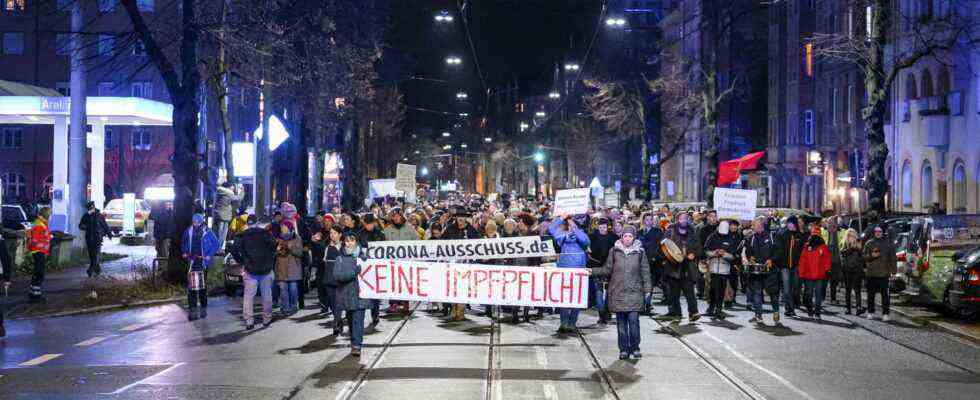Status: 04.01.2022 5:50 p.m.
Are “Corona walks” also gatherings in the legal sense? If so, to what extent are they protected – and how can the police proceed? An overview.
In many German cities, people have been coming together for so-called “corona walks” over the past few weeks and protesting against the measures taken by the federal government to contain the pandemic. Often these “walks” went unannounced.
Are “Corona walks” considered to be gatherings from a legal point of view?
As a rule, these “walks” are also demonstrations where the right of assembly applies. In the legal sense, there is an “assembly” when several people meet in order to jointly participate in the formation of public opinion, i.e. to discuss or announce something. The prerequisite is that the participants take a stand or take a stand that is noticeable to the outside world. This does not necessarily have to be done explicitly, but can also become clear from the more detailed circumstances – for example through their mere presence or the choice of a certain location.
Various circumstances can indicate the will to a joint rally: If the participants meet at a certain time in a certain place on the Internet, for example on Telegram or Facebook, if they carry flags or posters with them, but also when the “walkers” are now conspicuously coordinated to walk a set route. All of this then indicates that it is a “gathering”.
Measured against this, the statutory rules for meetings should apply to the vast majority of “Corona walks”. The assertion that it is just a “walk” does not change this if it is merely put forward.
When is a gathering protected?
Freedom of assembly is guaranteed in Article 8 of the Basic Law. From a constitutional point of view, this fundamental right enjoys special protection. The Federal Constitutional Court classifies it as “constitutive for the democratic constitutional state”. Like all other fundamental rights, freedom of assembly naturally also applies in pandemic times. Just like other basic rights, however, freedom of assembly can also be restricted under certain conditions.
An “assembly” within the meaning of the Basic Law is always subject to several conditions: It must be peaceful, so it must not take a violent or rebellious course. It must also take place without weapons. In addition, according to the Assembly Act, open-air demonstrations must be reported to the competent authority at least 48 hours before the announcement that they are to take place. In addition, a “meeting leader” must be named. The “Corona walks” do not always meet these requirements.
How can the police act?
If an outdoor demonstration is not registered and takes place anyway, every participant commits an administrative offense if he or she does not leave after being asked by the police three times. There is then a risk of fines. The police can also impose this if people violate the mask or distance requirement.
The police can also break up unannounced gatherings. However, it must act with a sense of proportion and in particular observe the principle of proportionality. As a fundamentally important right for the free democratic basic order, the freedom of assembly may only be restricted if interests of very high relevance oppose its exercise. The dissolution of a demonstration should therefore only be the last resort if no milder measures are evident.
Nationwide protests against corona measures
Martin Schmidt, ARD Berlin, Tagesschau 4:00 p.m., 4.1.2022

